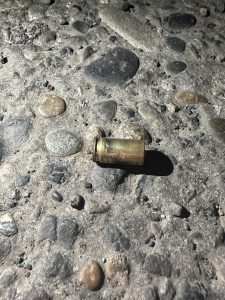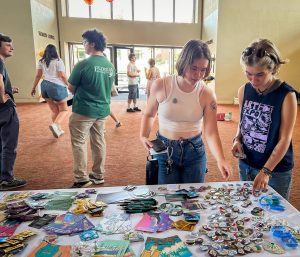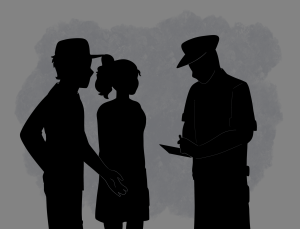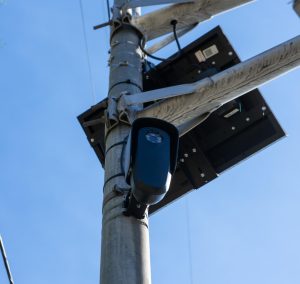Whitties in the Wild: A new course in “Land, Water, Justice” brings students outside of the classroom
September 22, 2022
This past spring, Whitman College’s environmental studies department piloted a three-week long field study course in conjunction with anthropology and politics. The course traveled from the Wallowa Valley of northeast Oregon into the Nez Perce Reservation in Idaho. The group of sixteen students and three professors packed camping gear, notebooks and themselves into a Turtle Top bus that departed from Whitman on May 25, 2022.
The course was titled “Land, Water, Justice,” and students in the course focused on defining these terms and exploring them both in academia, as well as in the field. These terms are not as easy to define as it may seem.
This notion was central to class discussion: how do you define “Land, Water, Justice?” How would you explain those terms to someone with no experience in this field? Sophomore Elle Palmer grappled with these questions.
“That’s a hard question to answer. ‘What is justice? What is reconciliation and what is reparation?'” Palmer said. “But that was kind of the premise of the whole course—to really trouble our ideas and our conceptions of a linear history that has gotten us to this point. But these [topics] are really entrenched issues in our current lives, and the point of the course was to obfuscate how we think about our environment.”
Sophomore Owen Jakel spoke on the balance between life camping with classmates and the coursework itself. He explained that although learning about local history through a lens of academic questioning is what brought students to the course, field work and class structure were what really defined the trip, as waking up in a tent with your classmates is not something the average Whitman student gets to experience.
“There was a heavy emphasis on the outdoors. You’d end up spending more than three hours with people working on meals every day,” Jakel said. “It was like you had two different classes. You had your academic class and then your own social experience, and I’m still taking things away from both of those things and I know I will continue to.”
This sense of community and connection with classmates and professors created a tight bond in the group. According to sophomore Sol Walker, as the group grew closer socially, the classroom dynamic also developed. Walker spoke to this dynamic and its efficacy for his own learning.
“What I really loved about [the experience] was the human connection that it was able to foster between the classmates and professors,” Walker said. “We were all in the same group for a long period of time and this broke down barriers that you have in a typical classroom. This is something I’m very grateful for. Being in a different class environment is where I really learned the most.”
Contrasting from the walls of a Maxey classroom, this new dynamic gave students a different perspective on learning. They were able to reflect on the differences between their classes on campus and the fieldwork they were experiencing.
“This sort of cohesive learning environment is hard to get in a classroom,” Walker said. “Professors here do a good job of striving to make class a space that is conducive to learning, but you still have a strict system of grading and homework. So, I’m grateful for the different kind of learning with this new program.”
Throughout the course, the class looked at two different case studies of injustice through this lens of environmental equality. Spending the first week with Gwen Trice, founder of the Maxville Heritage Interpretive Center in Joseph, Oregon, students studied the site of a segregated logging camp from the 1920s. They then packed up camp and traveled to the Nez Perce Reservation in Lapwai, Idaho, where they worked with Roger Amerman, a Whitman alumnus who helped organize the Long Tent project on campus during the 2022 spring semester.
After returning to Whitman for the final week of the course, students collected their notes and ideas as they recorded, edited and produced a five-episode podcast soon to be released through the University of Oregon. In this podcast, students provide a comprehensive review of their academic findings and the entire field experience.
Be on the lookout for “Land, Water, Justice” in the course catalog for this upcoming 2023 spring semester, as students and faculty hope to improve upon what students have referred to as the “experience of a lifetime.”






